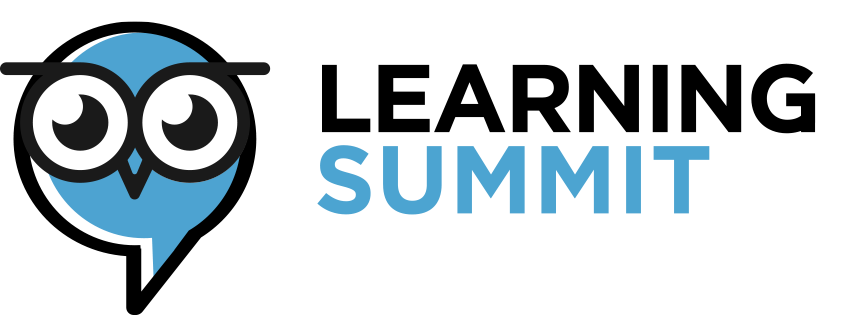How AI Agents Are Changing Learning and Development

In this episode of The Learning Summit Podcast, Alex interviews Sean Gilligan, founder of Webanywhere, to explore how AI agents are transforming learning and development. Discover how these virtual assistants are automating repetitive tasks, personalizing learning experiences, and boosting productivity across industries like healthcare and retail.
Learn practical examples of how AI agents can:
• Simplify compliance tracking
• Streamline onboarding
• Personalize training for employees
• Enhance collaboration for remote teams
Sean also shares insights into Webanywhere’s innovative use of AI agents and what the future holds for L&D technology.
Alex (Host): Welcome to The Learning Summit Podcast, where we explore the ideas shaping the future of learning and development. I’m your host, Alex, and today, we’re diving into a transformative technology that’s changing how we work and learn—AI agents. Joining me to discuss this fascinating topic is Sean Gilligan, founder of Webanywhere, a trailblazer in L&D technology. Sean, welcome to the podcast.
Sean (Guest): Thanks, Alex. Excited to be here.
Alex: Let’s get right into it. AI agents—what are they, and why are they such a big deal?
Sean: At a high level, AI agents are software programs that act on behalf of a user to complete tasks and achieve goals. What’s revolutionary now is their ability to control computers, automate workflows, and handle repetitive tasks that would otherwise take up valuable human time. This allows people to focus on more meaningful, higher-level work.
Alex: That’s a great introduction. What kinds of tasks can AI agents take off our plates, especially in the context of learning and development?
Sean: Think about all the administrative work involved in L&D—creating reports, scheduling training, sending reminders, or collating feedback. AI agents can handle these tasks seamlessly. For example, they can automatically pull progress data from an LMS, generate performance summaries, and notify managers, all without any manual effort. It’s like having an extra team member dedicated to the mundane so your team can focus on strategy and creativity.
Alex: That’s a game-changer. On the learner side, how can AI agents improve the experience?
Sean: AI agents make learning more personalized. Imagine a scenario where an employee struggles with data analysis. The AI agent can identify this gap, recommend specific training modules, and even schedule a session with a coach. It’s about delivering the right content to the right person at the right time. This not only enhances the learner’s experience but also boosts retention and application of skills.
Alex: And for teams working across different locations or time zones? How do AI agents support collaboration in learning?
Sean: Remote teams often face challenges in staying aligned. AI agents can act as virtual facilitators, capturing live meeting discussions, summarizing key points, and sharing them with absent team members. They can also prioritize tasks on platforms like Slack or Microsoft Teams, ensuring everyone knows what’s next without having to sift through endless messages.
Alex: That sounds powerful. But there’s always a concern about job displacement. Should we be worried about AI agents replacing human roles?
Sean: It’s a valid concern, but I see AI agents as augmenting, not replacing, human roles. By taking over repetitive tasks, they free people to focus on high-impact activities like problem-solving, creative thinking, and relationship building. For example, L&D professionals can spend less time managing compliance workflows and more time designing impactful learning journeys.
Alex: That’s a positive way to frame it. Can you give us examples from industries like healthcare or retail where AI agents are already making a difference?
Sean: Sure. In healthcare, compliance is a massive task—certifications and renewals can be a logistical nightmare. AI agents can track renewal dates, send reminders, and even enroll employees in the right courses. In retail, onboarding is a constant need due to high turnover. AI agents can deliver tailored training to new hires, helping them get up to speed faster and more efficiently.
Alex: Scalability is another big question, especially for global organizations. How do AI agents make scaling L&D programs easier?
Sean: AI agents are perfect for global operations. They can localize content for different regions, ensuring relevance across cultural and regulatory contexts. For instance, an agent might deliver GDPR training in Europe and OSHA training in the U.S., all while maintaining a consistent learner experience. They can also analyze learning data globally, helping organizations identify and address skill gaps proactively.
Alex: That’s impressive. How is Webanywhere leveraging AI agents in its platforms?
Sean: At Webanywhere, we’re integrating AI agents to make learning smarter and more accessible. For example, we’re building features that allow users to ask natural language questions like, “How do I deal with a difficult customer?” and instantly get relevant training materials. We’re also exploring voice and chat interfaces to make interactions even more intuitive.
Alex: That sounds cutting-edge. Where do you see AI agents taking the L&D industry in the next five years?
Sean: The future is all about hyper-personalized learning. AI agents will act like personal tutors, continuously adapting to each learner’s needs. They’ll also become more proactive, identifying skills employees will need before they realize it themselves. It’s about making learning not just reactive but predictive.
Alex: Before we wrap up, Sean, what advice would you give to organizations thinking about adopting AI agents for learning and development?
Sean: Start small. Pick one repetitive task—like compliance tracking or onboarding—and test how an AI agent can optimize it. Measure the results, get feedback, and then scale up. Also, involve your team from the start to build trust and get buy-in.
Alex: Fantastic advice. Sean, this has been a fascinating conversation. Thanks so much for joining us on The Learning Summit Podcast.
Sean: Thanks, Alex. It’s been a pleasure.
